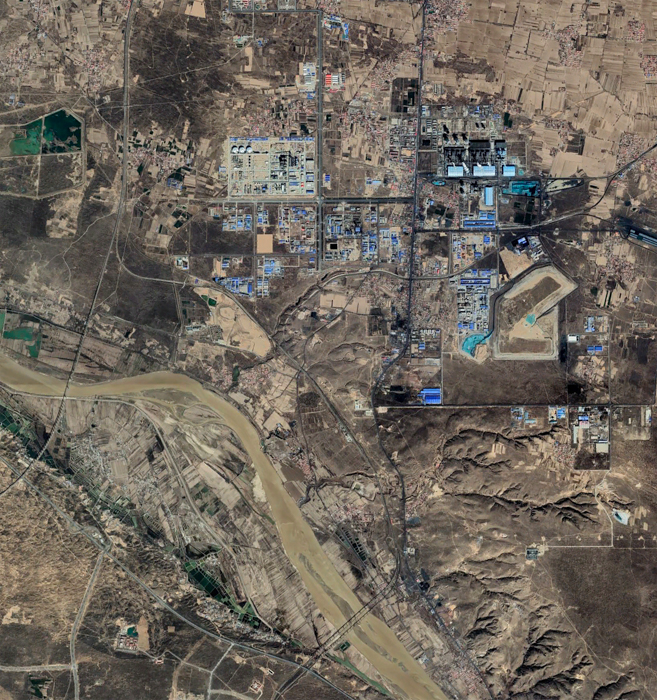
| |
| home |
| projects |
| contact me |
| links |
MASTER PIECES - INNER MONGOLIA
at
 |
Yanshanying Town (detail) Until Chinese law banned crypto-currency ‘mining’ in 2021 over environmental concerns, Inner Mongolia was one of 4 hubs for Bitcoin ‘mining’ in China, owing to its cheap energy supply, fired largely by coal. Approx area depicted: 12 km2
|
- back -